Four top LA academics want to give the city’s homeless population $1,000 a month in taxpayer cash with no strings attached
Four leading Los Angeles academics said a $1,000 monthly payment, with no strings attached, could save the city from its rampant homeless crisis.
Under the proposal, thousands of homeless people in LA could be housed in boarding houses and shared apartments if they received monthly payments ranging from $750 to $1,000.
Citing multiple pilot studies conducted across the country, the four authors highlighted the effectiveness of basic income in a draft of their policy brief titled Basic income subsidies to reduce homelessness in Los Angeles.
But the authors, Gary Blasi, Benjamin F. Henwood, Sam Tsemberis and Dan Flaming, did not say how the grants would be funded or who would be eligible for the payment.
They wrote, “If implemented properly, it could help tens of thousands of currently homeless Angelenos into housing at a much lower cost per person than our current system.”
Four leading Los Angeles academics said a $1,000 monthly payment with no strings attached could save the city from its rampant homeless crisis.
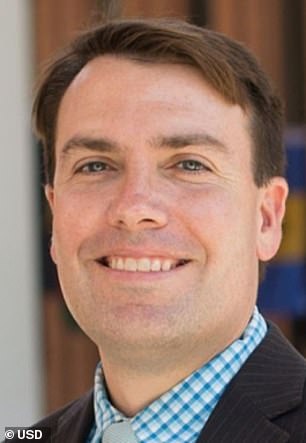
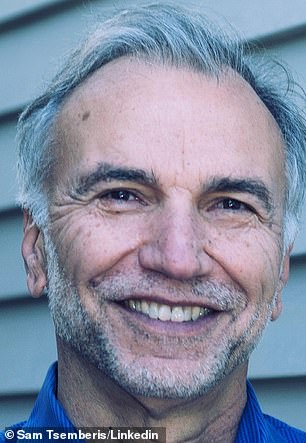
Citing multiple pilot studies conducted across the country, the four authors highlighted the effectiveness of basic income in a draft of their policy brief entitled Basic Income Grants to Reduce Homelessness in Los Angeles. Pictured: authors Benjamin Henwood (left) and Sam Tsemberis (right)

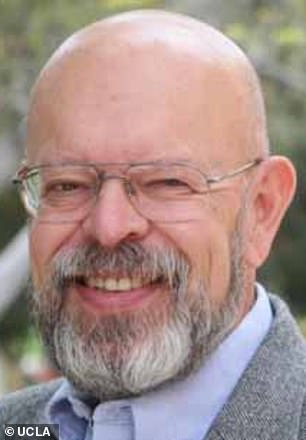
But the authors did not say how the grants would be funded or who would be eligible for the payment. Pictured: authors Daniel Flaming (left) and Gary Blasi (right)
“The idea that giving money to poor people is controversial just strikes me as strange,” co-author Henwood said in an interview with the Los Angeles Times.
“Of course that will help,” said the director of the Center for Homelessness, Housing and Health Equity Research at the USC School of Social Work.
“If the goal is to reduce the number of people on the streets, then money is certainly the fastest way to do that,” lead author Blasi, a professor emeritus at the UCLA School of Law, told the Times.
Blasi believes the current complex system is “built primarily to help people with severe disabilities,” which is proving ineffective in reducing the number of homeless people on the streets.
The authors argued that in the current system, relying on housing navigators to help those without housing is a lengthy and expensive process.
“The truth is that we cannot afford to do any better than the current system, which spends an enormous amount of money to house a small fraction of the people in need,” they wrote.
“Providing temporary housing during this process can be very expensive, as can increasing the supply of housing,” she added.
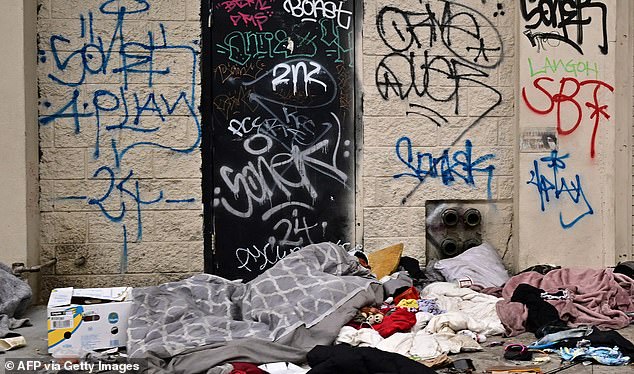
The authors argued that in the current system, relying on housing navigators to help those without housing is a lengthy and expensive process. Pictured: A homeless man sleeps under a blanket on a sidewalk in Skid Row
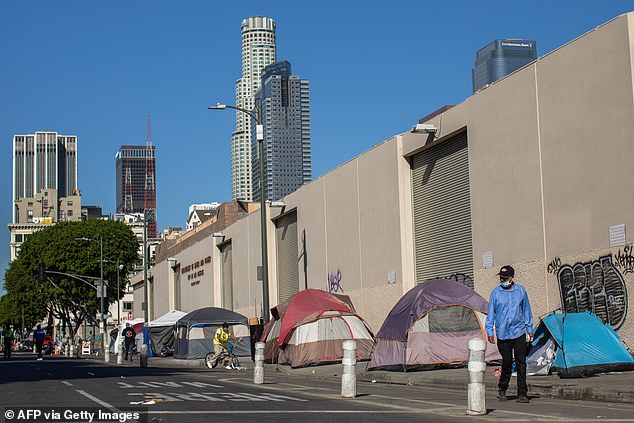
Tsemberis also emphasized that basic housing assistance is not intended for every homeless person on the street, as he said: “This is for the group that has more resources internally, has a work history, doesn’t struggle tremendously with mental illness or addiction.”
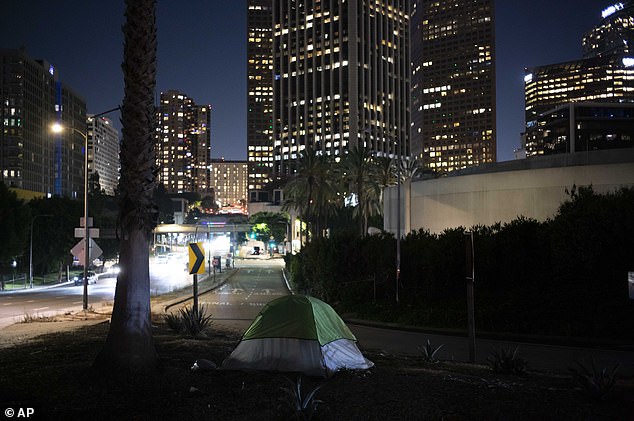
LA is currently home to more than 46,000 unhoused people, a 10 percent increase from the previous year, according to the Los Angeles Homeless Services Authority
Instead, the academics suggested another source of affordable housing: “informal housing.”
“Informal housing, once only a subject of study in developing countries, means housing that does not meet the standards of the formal housing market,” they wrote.
“It includes shared living arrangements, homes that do not meet all code requirements, rooms rented in single-family homes.”
“There’s already a huge informal rental market going on across California,” said co-author Tsemberis, a clinical community psychologist at the UCLA School of Psychiatry.
‘People rent out single-family homes. They have two or three beds in each of the bedrooms and charge $400, $500 a month to put people up.”
Tsemberis also emphasized that basic housing assistance is not intended for every homeless person on the street.
“This is for the group that has more resources internally, has a work history and doesn’t struggle much with mental illness or addiction,” he said.
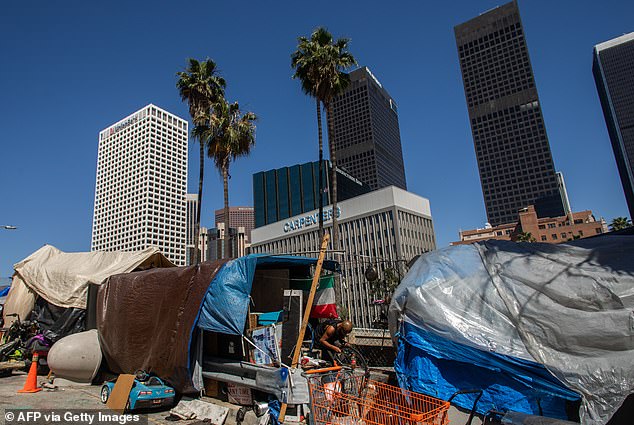
Bass has instead called on the ‘luckiest’ to help tackle the crisis as part of the LA4LA programme, its latest homelessness prevention initiative
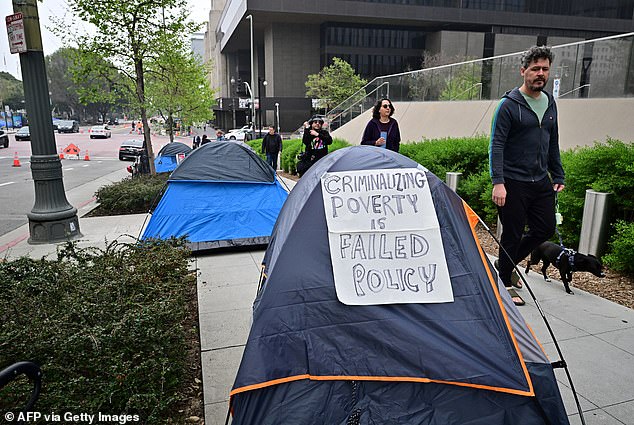
Homelessness in downtown LA in particular has exploded since the pandemic, with over 10,000 more unhoused people on the streets since 2019
LA is currently home to more than 46,000 unhoused people, a 10 percent increase from the previous year, according to the Los Angeles Homeless Services Authority.
Homelessness in downtown LA in particular has exploded since the pandemic, with more than 10,000 more unhoused people on the streets since 2019.
Since 2015, homelessness in the city has increased by 70 percent. Non-profit services like Midnights Mission have been pushed to their limits.
The mission serves three meals a day to people living on the streets, and also offers services such as temporary housing, a barbershop and a women’s crisis center.
According to the organization, homelessness among women in LA has increased by 55 percent in just three years. More than 90 percent of these women have experienced physical or sexual violence.
Los Angeles County has a budget of $609.7 million to address homelessness in 2023-2024, $61.8 million more than the previous year.
The budget will go toward reducing encampments, increasing temporary and permanent housing and increasing mental health and addiction services for people experiencing homelessness.
